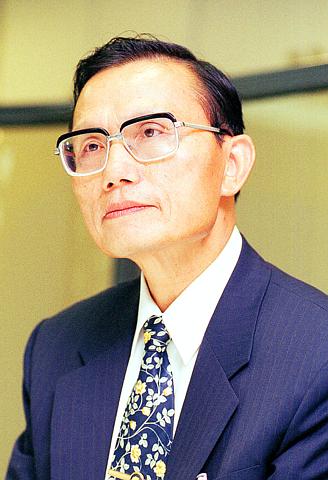Warning that a kind of "regional Armageddon" could result, Australian Foreign Minister Alexander Downer said yesterday that he would urge China not to use force to resolve its dispute with Taiwan during a visit by Chinese President Jiang Zemin (
Jiang is scheduled to make a four-day visit to Australia before attending the Asia Pacific Economic Cooperation summit in Auckland, New Zealand, where he will also hold talks with US President Bill Clinton.
Tension in the Taiwan Strait has heightened as Beijing stepped up military pressure on Taiwan to retract a recent affirmation of statehood by President Lee Teng-hui (

PHOTO: CHIANG YING-YINGN
Downer said military force to resolve the issue was unacceptable.
"We will be saying to President Jiang ... that we obviously take a very strong view against the use of force in the Taiwan Strait," Downer said on the Ten network's Meet the Press program.
"What Beijing understands is that any military conflict with Taiwan would have simply horrendous implications for China's relationship with the United States," he said.
"A war between China and the United States is something tantamount to a regional Armageddon."
Australian anxiety about tensions between China and Taiwan was raised by Jiang's insistence to The Australian newspaper last week that China reserved the right to use force to reunite with Taiwan.
Jiang said China's preferred policy was reunification by peaceful means, but this needed the support of a military option to be effective.
"It is the shared aspiration of the entire 1.2 billion Chinese people to settle the question of Taiwan at an early date," he said. "If China were to undertake not to use force, the peaceful reunification of China would become hollow words."
Among issues expected to be discussed during China-US talks are Taiwan and China's accession to the WTO.
US-China relations have been strained since the bombing of the Chinese embassy in Belgrade.

AIR SUPPORT: The Ministry of National Defense thanked the US for the delivery, adding that it was an indicator of the White House’s commitment to the Taiwan Relations Act Deputy Minister of National Defense Po Horng-huei (柏鴻輝) and Representative to the US Alexander Yui on Friday attended a delivery ceremony for the first of Taiwan’s long-awaited 66 F-16C/D Block 70 jets at a Lockheed Martin Corp factory in Greenville, South Carolina. “We are so proud to be the global home of the F-16 and to support Taiwan’s air defense capabilities,” US Representative William Timmons wrote on X, alongside a photograph of Taiwanese and US officials at the event. The F-16C/D Block 70 jets Taiwan ordered have the same capabilities as aircraft that had been upgraded to F-16Vs. The batch of Lockheed Martin

GRIDLOCK: The National Fire Agency’s Special Search and Rescue team is on standby to travel to the countries to help out with the rescue effort A powerful earthquake rocked Myanmar and neighboring Thailand yesterday, killing at least three people in Bangkok and burying dozens when a high-rise building under construction collapsed. Footage shared on social media from Myanmar’s second-largest city showed widespread destruction, raising fears that many were trapped under the rubble or killed. The magnitude 7.7 earthquake, with an epicenter near Mandalay in Myanmar, struck at midday and was followed by a strong magnitude 6.4 aftershock. The extent of death, injury and destruction — especially in Myanmar, which is embroiled in a civil war and where information is tightly controlled at the best of times —

Taiwan was ranked the fourth-safest country in the world with a score of 82.9, trailing only Andorra, the United Arab Emirates and Qatar in Numbeo’s Safety Index by Country report. Taiwan’s score improved by 0.1 points compared with last year’s mid-year report, which had Taiwan fourth with a score of 82.8. However, both scores were lower than in last year’s first review, when Taiwan scored 83.3, and are a long way from when Taiwan was named the second-safest country in the world in 2021, scoring 84.8. Taiwan ranked higher than Singapore in ninth with a score of 77.4 and Japan in 10th with

SECURITY RISK: If there is a conflict between China and Taiwan, ‘there would likely be significant consequences to global economic and security interests,’ it said China remains the top military and cyber threat to the US and continues to make progress on capabilities to seize Taiwan, a report by US intelligence agencies said on Tuesday. The report provides an overview of the “collective insights” of top US intelligence agencies about the security threats to the US posed by foreign nations and criminal organizations. In its Annual Threat Assessment, the agencies divided threats facing the US into two broad categories, “nonstate transnational criminals and terrorists” and “major state actors,” with China, Russia, Iran and North Korea named. Of those countries, “China presents the most comprehensive and robust military threat